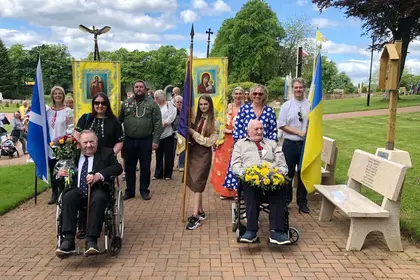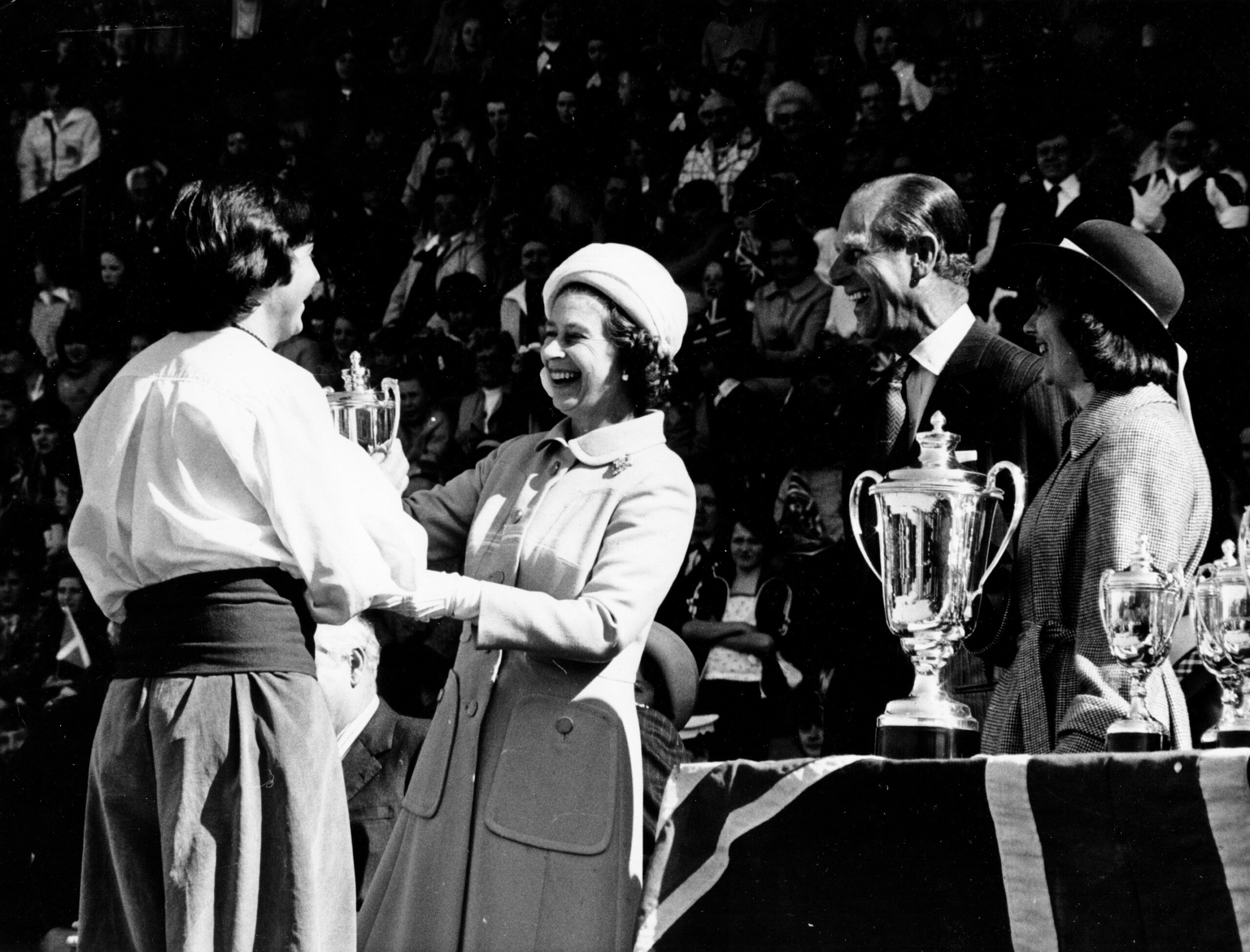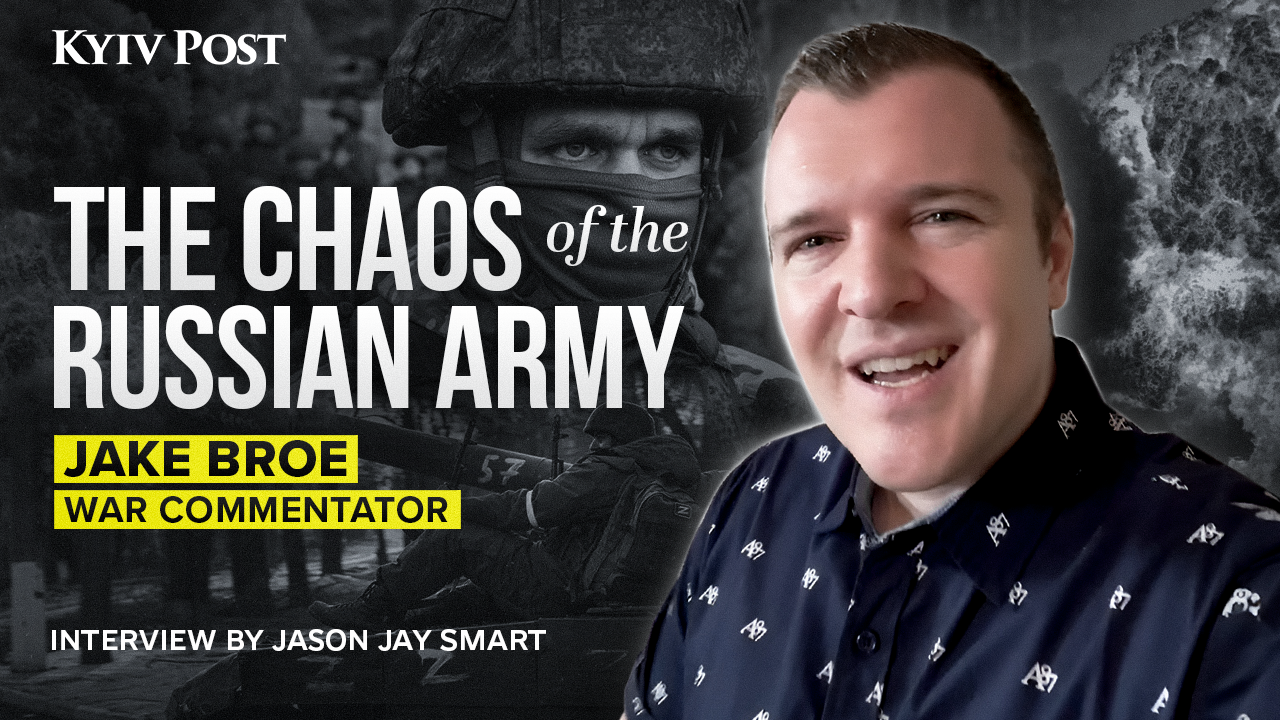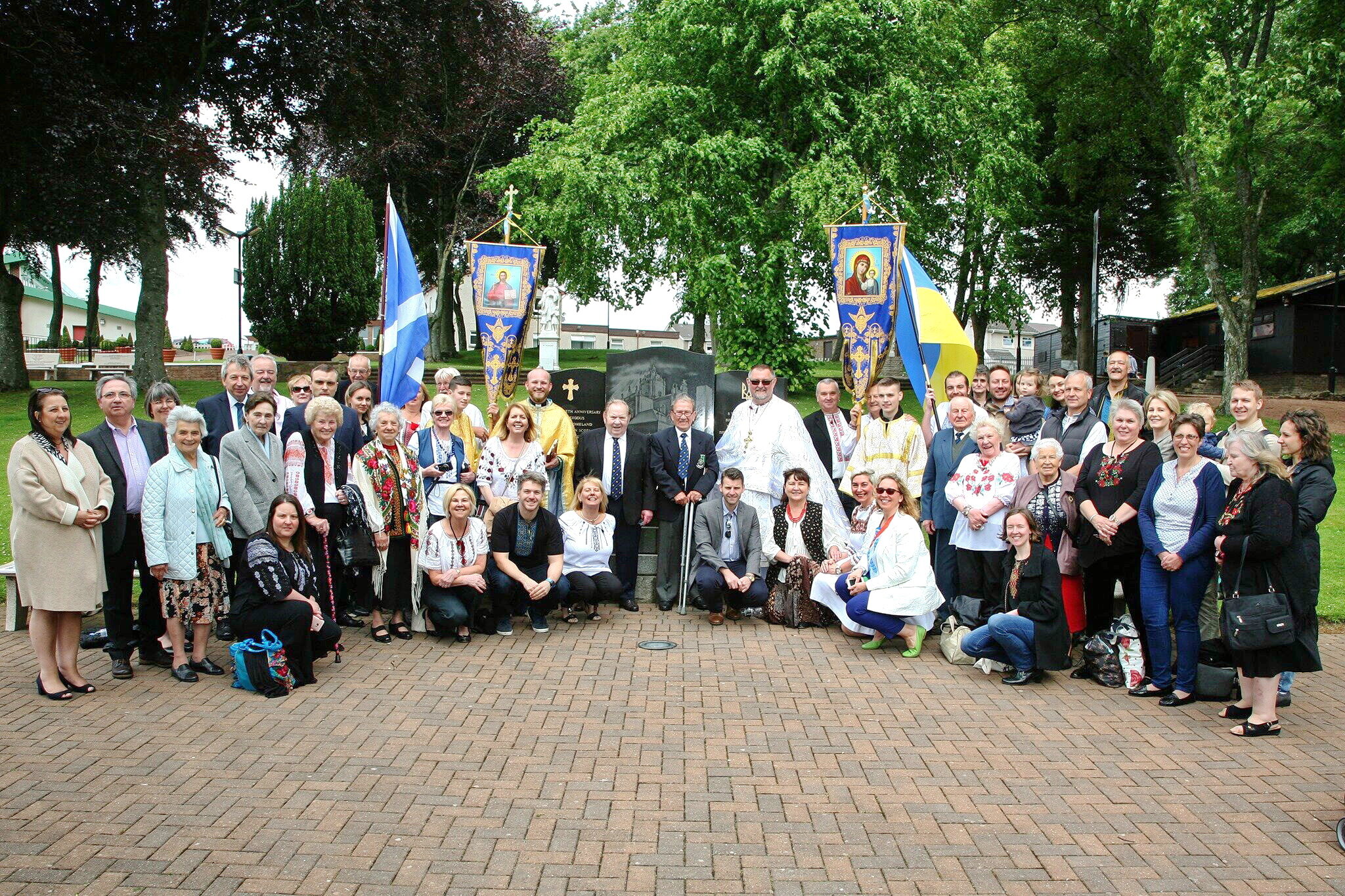EDINBURGH, Scotland — Nearly 80 years since the first arrival of Ukrainians to Great Britain, members of the Scottish-Ukrainian diaspora are fighting to keep their culture alive from their headquarters in Edinburgh.
This small team of volunteers, many of whom are now third-generation immigrants, take part in the uptake of their community center, which is a cornerstone of the Ukrainian community in Scotland.
JOIN US ON TELEGRAM
Follow our coverage of the war on the @Kyivpost_official.
Despite an ever-dwindling number of volunteers, the Scottish Ukrainians are now busily preparing for their most ambitious independence day yet, which commemorates Ukraine, and their immigrant ancestors.
Micheal Kerr, the vice chair of the Edinburgh Ukrainian Association, stated that it was crucial to celebrate it this year.
“It’s especially important to celebrate it after so long,” he said.
Ukraine’s Independence Day
Now, on Ukraine’s 30th anniversary of independence, the Ukrainian community of Scotland prepared its most ambitious event yet.
The city of Edinburgh has a special connection with Kyiv. Not only has it accommodated many Ukrainian migrants, but it is also twinned with the Ukrainian capital.
As such, Edinburgh will celebrate Ukraine’s independence with official celebrations. It will be the first time that the Lord Provost, Scotland’s equivalent of mayor, will take part in the celebrations and the first time in five years that the flag of Ukraine will fly above Edinburgh.
On Aug 24, Scotland’s Ukrainians will gather around the Edinburgh City Chamber to honour the raising of the Ukrainian flag about the council offices.
A procession will then gather by Edinburgh’s monument to historical Ukrainian leader, Volodymyr the Great.
Walking once again in procession, a lone piper will lead the Ukrainian community to Edinburgh’s Holodomor monument, laying flowers in the memory of millions of Ukrainians who died as a result of Stalin’s man-made famine in 1932-1933.
The organizers of the procession will also plant kalyna trees, a plant traditionally used to mark big occasions, which have been specially donated from Ukraine.
As the evening progresses, a small celebration will be held from their Edinburgh club, welcoming members of the diaspora, and locals too, to mark the event with music, drinks, and celebrations.
Ukraine’s 30th independence day celebrations will be the association’s most important to date for the diaspora established after World War II.
Post-war history
According to Roman Krawec, a researcher on the Ukrainian diaspora in the United Kingdom, an estimated 34,000 to 36,000 Ukrainians relocated to Great Britain following World War II.
Some were former soldiers, many of whom were recruited by the British to fight against Nazi Germany as part of Winston Churchill’s Polish Armed Forces under British Command.
Before the outbreak of the Second World War, many ethnic Ukrainians lived in Poland, and were conscripted to the Polish army. In total, 1,000 Ukrainians, citizens of pre-war Poland, came to the UK as part of the exiled Polish army.
However, a large number of Ukrainians equally came to Scotland as prisoners of war captured from the 14th “Galicia” Division of the Waffen-SS and rehabilitated in British captivity.
Others relocated to Scotland as displaced persons, arriving to work as part of the European Volunteer Workers scheme, which recruited labourers from territories liberated from the Nazis to help rebuild post-war Britain.
Many Ukrainians went to work in the textile, mining, and agricultural industries of Scotland.
Kerr’s grandfather, whose family name was Jakowuik, had arrived in Scotland following the war and found work in the Scottish textiles industry, later bringing most of his family with him.
Edinburgh attracted a large community of western Ukrainians and Polish Ukrainians, mainly Greek-Catholics, who later established Edinburgh’s church of Saint Andrew in Edinburgh.
Members of the Scottish Ukrainian community recently rediscovered and restored a large Tryzub monument which was found nestled away on the site of a former Ukrainian community in the Scottish highlands, attracting media attention in Ukraine.
While just over a quarter of Ukrainians later relocated to other parts of the world, by 1950 around 22,000-27,000 remained.
According to members of the association, there were once around 3,000 first-generation Ukrainians in Scotland. Now, just a handful of those original migrants now survive.
A dwindling community
Unfortunately for Scotland’s Ukrainian community, it has proved difficult to maintain Ukrainian heritage outside of Edinburgh.
“It’s unfortunate, just with members passing away, and just not coming along, my local club closed in the 90s,” said Kerr. “Because we are now so isolated, we have to make an effort.”
Kerr is one of those who volunteer to help in the surviving Edinburgh branch. With help from immigrants to Britain, the association hosts online Ukrainian language lessons, traditional dances, poetry nights, and also opens its doors to locals to help expose Edinburgh residents to Ukrainian culture. Fellow volunteer Louisa Tymkewycz reflected on her youth, stating that she was brought up in a Scottish environment, but a distinctly Ukrainian culture.
As communities had fragmented, closed, or moved on, Tymkewycz now sees the priority of her work for the centre as cultural preservation. “Sadly, yes, over the years less people are attending,” she said. “It’s just a matter of trying to keep up traditions. We were brought up trying to celebrate our Ukrainian heritage.”
You can also highlight the text and press Ctrl + Enter










